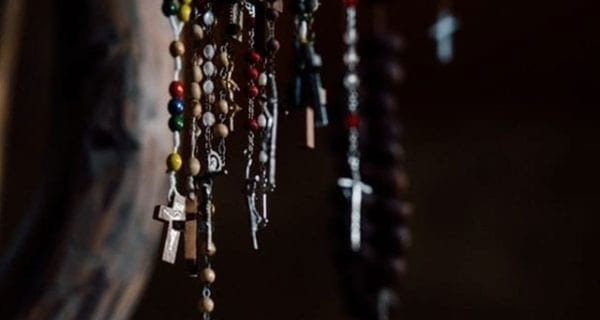 It’s a safe bet that Asia Bibi – a Christian woman recently acquitted of blasphemy charges in Pakistan but still facing mob violence – would say religious freedom makes Canada a better country. Indeed, it’s because Canada enjoys religious freedom that this country may even grant her asylum.
It’s a safe bet that Asia Bibi – a Christian woman recently acquitted of blasphemy charges in Pakistan but still facing mob violence – would say religious freedom makes Canada a better country. Indeed, it’s because Canada enjoys religious freedom that this country may even grant her asylum.
Chances are that Muslim Rohingyas fleeing Burma or Yazidis and Christians fleeing the Islamic State would also appreciate religious freedom.
But ask Canadians and you’ll find only 59 per cent say religious freedom makes our country better. That’s according to an extensive survey by the Angus Reid Institute in partnership with the think-tank Cardus.
While a clear majority sees the benefits of religious freedom, it’s curious that more of us aren’t enthusiastic about this fundamental human right.
What’s at play here?
There are likely several factors, including a hard-core secularist viewpoint, though this remains a minority view in Canada.
The same survey used a series of measures to classify Canadians among three categories – those welcoming of faith in public life, those who are unsure and those hostile to it. The proponents of public faith are the largest group at 37 per cent, while the other two weigh in at 32 per cent each. Only 31 per cent of the group hostile to public faith say religious freedom makes Canada better. An almost equal proportion says it makes Canada worse.
Clearly, hard-core secularism contains a fervent opposition to religion and its free expression.
Related to that secularism could be prejudice against public displays of faith. Indeed, half of Canadians say they’re uncomfortable with religious garments or symbols in the workplace – something that disproportionately affects Muslims, Jews and Sikhs. Such discomfort may translate into lower support for religious freedom.
Still, that’s not the whole story. Could it also be that some Canadians feel that the Charter of Rights and Freedoms’ guarantee of religious freedom doesn’t adequately protect them? If so, their answer about religious freedom may reflect their judgment on the effectiveness of Charter protections.
Seven in 10 Canadians say they feel the federal government respects their religious community. And almost six in 10 say Canadian society either makes room for their faith and values, or has little impact on them.
Digging deeper uncovers a mixed picture.
First the good news: A remarkable 85 per cent of non-Christians – including Hindus, Jews, Buddhists, Muslims and Sikhs – say they feel the government respects them. This is also the group least likely to say society shuts out their faith and values.
This is encouraging. Non-Christians should feel welcome in Canada.
Now the bad news: Christians don’t fare as well. Overall, Catholic and other Christians feel less respected by government and less welcome in society than non-Christians do.
But it’s Canada’s evangelical Protestants who feel especially marginalized. They’re the most likely to say the feds disrespect them, with four in 10 evangelicals saying so. And just over half of this religious minority says society shuts them out. They may not be enjoying all the benefits of religious freedom.
This finding is unsurprising given the news of the last year:
- Evangelicals and other Christians bore the brunt of the federal government’s Canada Summer Jobs fiasco, which filtered out grant recipients based on their beliefs. Legal challenges are ongoing but haven’t borne fruit yet.
- The evangelical Trinity Western University in B.C. faced discrimination by several law societies opposed to it setting up a law school – discrimination that the Supreme Court of Canada eventually upheld.
- And in Alberta, it’s mostly evangelical schools that are threatened with the loss of funding over an ideological disagreement with the provincial government.
But could there also be some amnesia about the fundamental human right of religious freedom?
What many may not realize is that religious freedom is not just for the religious; it benefits everyone. It protects the ability of the religious and non-religious to act according to their deepest beliefs – informing our freedoms of speech, association and assembly. More Canadians need to see and understand this connection.
Thankfully, no one has an experience in Canada like Asia Bibi’s in Pakistan. But we do see signs that hard secularism and the marginalization of some Canadians are reducing our deep pluralism and chipping away at our freedoms.
With work and goodwill, though, we can reverse those trends.
Ray Pennings is executive vice-president of the think-tank Cardus.
The views, opinions and positions expressed by columnists and contributors are the author’s alone. They do not inherently or expressly reflect the views, opinions and/or positions of our publication.
